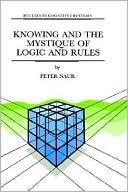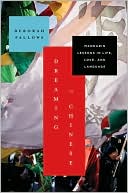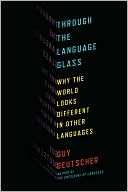Knowing And The Mystique Of Logic And Rules, Vol. 18
Search in google:
Human knowing is examined as it emerges from classical empirical psychology, with its ramifications into language, computing, science, and scholarship. While the discussion takes empirical support from a wide range, claims for the significance of logic and rules are challenged throughout. Highlights of the discussion: knowing is a matter of habits or dispositions that guide the person's stream of consciousness; rules of language have no significance in language production and understanding, being descriptions of linguistic styles; statements that may be true or false enter into ordinary linguistic activity, not as elements of messages, but merely as summaries of situations, with a view to action; in computer programming the significance of logic, proof, and formalized description, is incidental and subject to the programmer's personality; analysis of computer modelling of the mental activity shows that in describing human knowing the computer is irrelevant; in accounting for the scholarly/scientific activity, logic and rules are impotent; a novel theory: scholarship and science have coherent descriptions as their core. The discussion addresses questions that are basic to advanced applications of computers and to students of language and science. Booknews Computer scientist Naur constructs a description of human knowing that he intends to be coherent across the boundaries of psychology, language, computing, science, and scholarship. He argues that what we usually call human knowing is always a coherence of large areas of insight and the texts by which this insight is formulated. A major impetus is to challenge what he calls the Mystique of Logic and Rules, the notion that any insight, particularly in science, must be forged of truth and logic and arrived at through rules. As well as fellow computer scientists, scholars of language and science may find the discussion of interest. Annotation c. Book News, Inc., Portland, OR (booknews.com)
Series PrefacePrefaceAcknowledgementsWilliam James's Psychology of Knowing5Bertrand Russell on Knowing51J. L. Austin on How One Knows71Gilbert Ryle on Knowing75Summary on the Psychology of Knowing87Rules and Regularity in Language95Rules and Regularity in Musical Composition111Language Production and Understanding121True Statements in Knowing and Action137Three Notions of Proof165Proof Versus Formalization171Personal Style in Program Description and Understanding189Computer Modelling of Human Knowing Activity213The Structure of DNA: Knowing in Biological Discovery231Why the Sun Shines: Coherence and Models in Scientific Description253Aberration in Special Relativity: A Case of Chronic Scientific Confusion261The Metaphysics of Constructed Models271Logic and Psychology of the Scientific Activity293Coherent Description as the Core of Scholarship and Science317References351Index357








